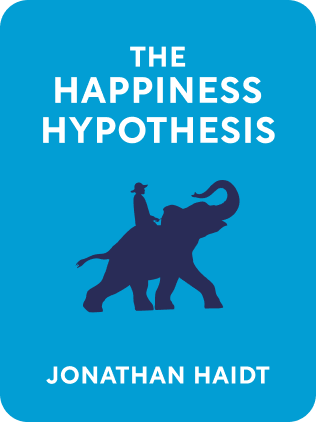

This article is an excerpt from the Shortform book guide to "The Happiness Hypothesis" by Jonathan Haidt. Shortform has the world's best summaries and analyses of books you should be reading.
Like this article? Sign up for a free trial here .
What is the theory of self-concept? Should we de-emphasize the self? Or can celebrating it make us happy?
Self-concept theory is the how an individual thinks about themselves. In the east, they de-emphasize the self to reach enlightenment. In the west, many celebrate the ethic of autonomy. Ultimately, we should be practicing a bit of both.
Keep reading to learn more about the self-concept theory.
Self-Concept Theory
Alone among animals, humans have a highly cultivated idea of the self. We call this the self-concept theory. We create narratives and self-conceptions and then judge our actions by the standard of that narrative. It gives us rich interior lives, but it can also lead to egotism and self-consciousness. We are our own worst critics and our own worst enemies because of the endless self-commentary and self-criticism.
Eastern traditions generally de-emphasize the self, seeing it and its needs as obstacles to true enlightenment. Thus, they urge meditation and self-denial. This de-emphasis of the self also exists in western thought. Many moral debates in the west boil down to how important the self should be.
Should the ethic of autonomy—do what makes you happy as long as you don’t hurt others—be dominant? Or should we hew to the ethic of divinity—self-sacrifice or denial of the individual in service of a set of shared spiritual ideals?
Politics of Individual Liberty
The progressive left generally favors the former, believing that enshrining community ethics will trample upon individual liberty and lead to the persecution of minority groups. The traditionalist right tends to favor the latter, believing that excessive individual liberty leads to a values-free society in which any immoral conduct can be justified or rationalized.
But the debate is a false choice. Ultimately, we need both. We need to acknowledge the fundamental human craving for shared experiences of the divine, while not pushing a version of it that excludes people who might not share the spiritual beliefs of the majority in a given society.

———End of Preview———
Like what you just read? Read the rest of the world's best book summary and analysis of Jonathan Haidt's "The Happiness Hypothesis" at Shortform .
Here's what you'll find in our full The Happiness Hypothesis summary :
- How your emotions determine how satisfied you are in life
- Why you need to struggle in order to succeed
- How to create your own happiness






